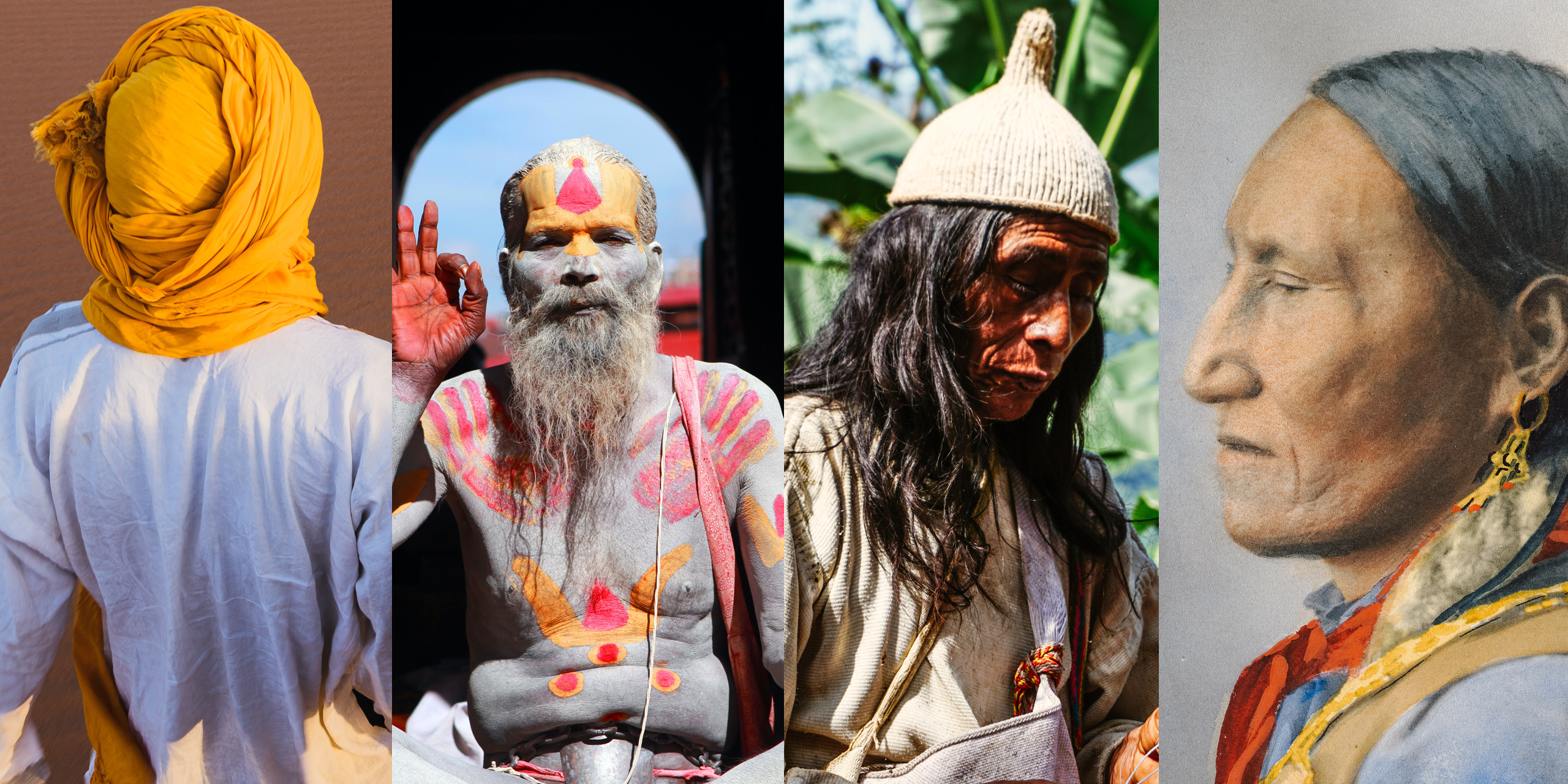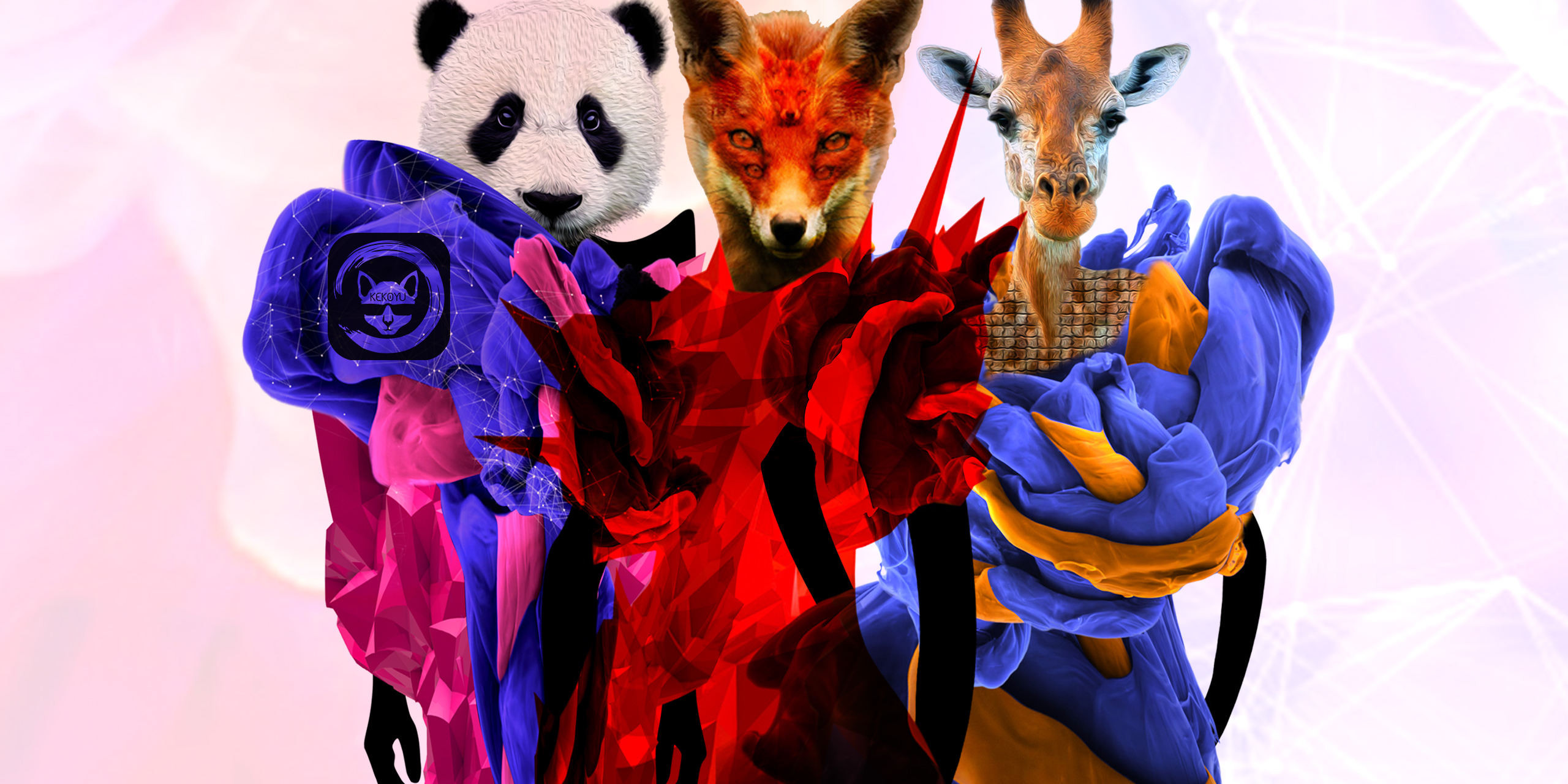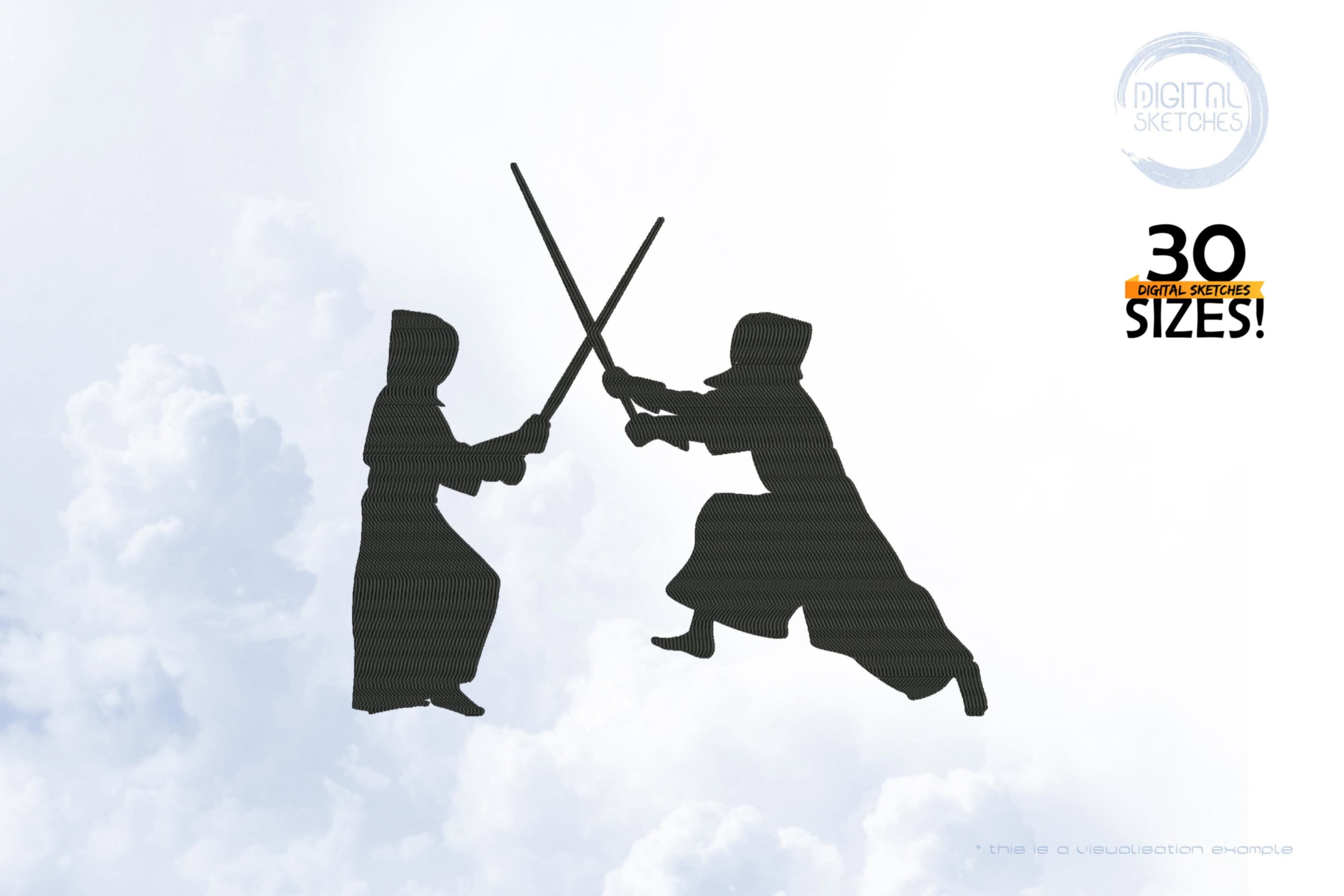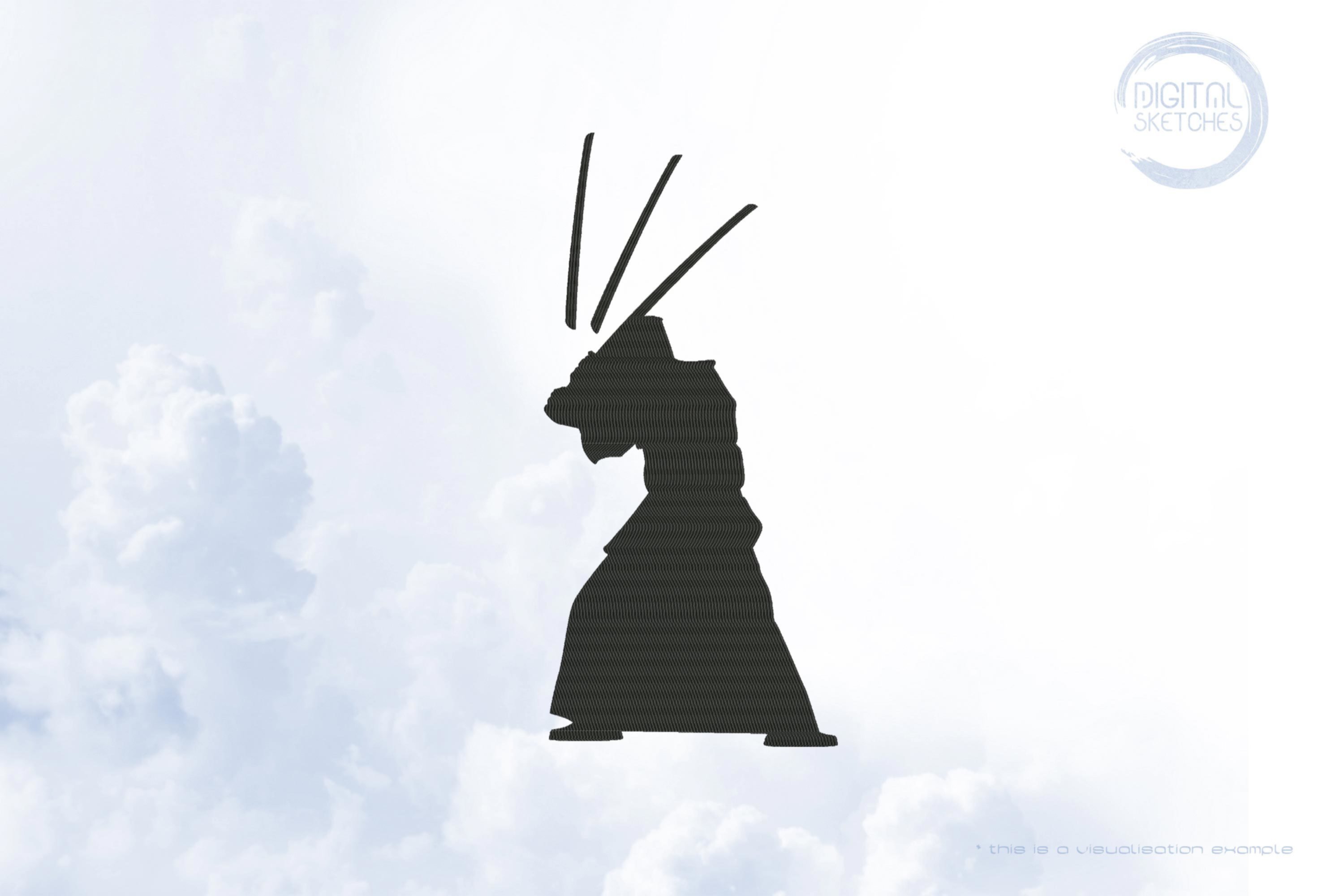
Cultures
In the broadest sense, culture refers to all manifestations of human existence that are based on certain value concepts and learned behaviors, which in turn are expressed in the permanent production and preservation of values - as an opposite concept to nature, which is not created and not changed by man. Important masterminds of this concept of culture are, for example, Arthur Schopenhauer, Harald Höffding and Joseph Petzoldt.
There are - depending on science, worldview or professional context - a variety of narrower definitions of culture.
Beyond academic discourse, the term culture is used synonymously in cultural policy to refer to the "fine arts" (visual arts, music, literature).
In common language, the term often stands either for sophistication (manners, morality, culture of living, culture of eating, etc.) or in demarcation of the (assumed typical) modes of expression and behavior - the cultural standards - of one's own ethnic group (e.g., Bavarians, Germans, Europeans) in comparison with so-called other cultures (such as Chinese, Latin Americans, indigenous peoples). Racist ideas may be hidden behind this usage.
Cultures in the plural is used not only in public-political discourse, but also in ethnology, for archaeological cultures, and in comparative social research to distinguish groups of people according to cultural characteristics. The term subcultures is often used for variants within a cultural group. In ethnology, the concept of distinguishable cultures is increasingly problematic today because of its constructed nature (defining boundaries where in reality there are fluid transitions).
In the course of history, the concept of culture has repeatedly been subjected to a definition from different sides. Depending on the term culture, it expresses the respective living self-image and zeitgeist of an epoch, the status or claim to power of certain social classes, or scientific and philosophical-anthropological views. The range of meanings is correspondingly wide and extends from a purely descriptive use ("the culture of that time") to a prescriptive (normative) one, if in the latter case claims to be fulfilled are associated with the concept of culture.
With regard to the protection of cultural property, there are a number of agreements and laws. UNESCO and its partner organizations coordinate an international protection and local implementations.
%
Kokopelli Flute Player Symbol IV
Kokopelli is the name given to a religious symbol that has survived in the form of petroglyphs of the anasazi and various prehistoric indian peoples of the southwestern united states. This human-like figure is depicted as a flute player, often with a hump and usually with a pronounced phallus. Kokopelli is considered a fertility deity and is often depicted with other symbols related to fertility of farmland, huntable game, and human sexuality. The name kokopelli comes from the hopi spirit kookopolo (one of the kachina spirits), which represents fertility of people and crops. It has been generally applied to these prehistoric images by ethnologists since the beginning of the 20th century, although there are significant differences in representation and function in addition to great similarities. Today, kokopelli is considered a universal symbol of the region and its culture in the southwestern united states and is depicted thousands of times in advertising. The kokopelli is the most commonly depicted human-like figure of the anasazi and their direct and indirect successors. He is found both as petroglyphs, painted on the rock, and as petroglyphs, carved into the surface of the rock, throughout the southwest, predominantly on the colorado plateau around the four corners, less frequently in other parts of utah, colorado, new mexico, and arizona, and sporadically beyond the borders in nevada, texas, oklahoma, and extreme northern mexico. The greatest densities are found at the taawaiki site on black mesa in arizona, with about 175 images of kopopelli, and at the santa fe river near la cienega in new mexico, with at least 130 flute players. Rock carvings of flute players can be traced to very early times in the southwest. At least five figures in southern utah date to the archaic period and are of the barrier canyon style, dated to between 4000 and 500 bc. In the basketmaker culture of northern arizona, their distribution increases significantly before the year 500. These earliest images of flute players without other attributes may simply represent human musicians without religious significance. The development of the figure with all pertinent attributes probably took place on the upper rio grande and in the san juan basin and is dated to the pueblo i phase of the anasazi culture and thus to the period from 750 to 900. Early representations are mostly stick figures or depicted as an outline, later other forms are added and regionally different traditions are formed.Product Number: N09298Product Name: kokopelli-IThis design comes with the following sizes: Size: 3.61"(w) X 6.21"(h) (91.6mm X 157.8mm) Size: 3.65"(w) X 6.29"(h) (92.6mm X 159.8mm) Size: 3.87"(w) X 6.69"(h) (98.4mm X 169.8mm)Size: 3.94"(w) X 6.80"(h) (100.2mm X 172.8mm) Size: 4.04"(w) X 6.96"(h) (102.6mm X 176.8mm) Size: 4.13"(w) X 7.12"(h) (104.8mm X 180.8mm) Size: 4.20"(w) X 7.24"(h) (106.6mm X 183.8mm) Size: 4.22"(w) X 7.28"(h) (107.2mm X 184.8mm) Size: 4.29"(w) X 7.39"(h) (109.0mm X 187.8mm) Size: 4.33"(w) X 7.47"(h) (110.0mm X 189.8mm) Size: 4.38"(w) X 7.55"(h) (111.2mm X 191.8mm) Size: 4.45"(w) X 7.67"(h) (113.0mm X 194.8mm) Size: 4.54"(w) X 7.83"(h) (115.4mm X 198.8mm) Size: 4.61"(w) X 7.94"(h) (117.0mm X 201.8mm) Size: 4.70"(w) X 8.10"(h) (119.4mm X 205.8mm) Size: 5.00"(w) X 8.61"(h) (127.0mm X 218.8mm) Size: 5.02"(w) X 8.65"(h) (127.6mm X 219.8mm) Size: 5.25"(w) X 9.05"(h) (133.4mm X 229.8mm) Size: 5.48"(w) X 9.44"(h) (139.2mm X 239.8mm) Size: 6.00"(w) X 10.35"(h) (152.4mm X 262.8mm) Size: 6.83"(w) X 11.76"(h) (173.4mm X 298.8mm) Size: 6.85"(w) X 11.80"(h) (174.0mm X 299.8mm) Size: 8.20"(w) X 14.13"(h) (208.2mm X 358.8mm) The following formats are included in the file you will receive: .DST .EXP .JEF .PES .VP3 .XXX .PEC .U01You MUST have an embroidery machine and the software needed to transfer it from your computer to the machine to use this file. This listing is for the machine file only - not a finished item.Kokopelli Flute Player Symbol Machine Embroidery Design, Prehistoric Indian People Embroidery Pattern, Flute Player Designs, Kokopoelloe Embroidery Art, Kachina, Hopi, DIY Project Idea, Unique Digital Supplies For Embroidery Machines
US$1.10* US$4.40* (75% saved)
%
Lungta Wind Horse
Lungta, also known as the "wind horse", is a Tibetan mythical creature that is deeply rooted in Tibetan culture and symbolism.Product Number: N07556Product Name: LungtaThis design comes with the following sizes:Size: 8.93"(w) X 8.35"(h) (226.8mm X 212.2mm) Size: 9.76"(w) X 9.13"(h) (247.8mm X 231.8mm) Size: 10.35"(w) X 9.69"(h) (262.8mm X 246.0mm) Size: 10.62"(w) X 9.94"(h) (269.8mm X 252.4mm) Size: 11.61"(w) X 10.86"(h) (294.8mm X 275.8mm) Size: 11.80"(w) X 11.05"(h) (299.8mm X 280.6mm) Size: 12.63"(w) X 11.82"(h) (320.8mm X 300.2mm) Size: 13.77"(w) X 12.89"(h) (349.8mm X 327.4mm)The following formats are included in the file you will receive: .DST .EXP .JEF .PES .VP3 .XXX .PEC .U01You MUST have an embroidery machine and the software needed to transfer it from your computer to the machine to use this file. This listing is for the machine file only - not a finished item. Lungta Wind Horse Machine Embroidery Design, Tibetan Mythical Creature Embroidery Pattern, Embroidery Art, DIY Project Ideas, Beautiful Digital Supplies For Embroidery Machines
US$1.10* US$4.40* (75% saved)
%
Kendo Martial Art II
Kendo is a traditional Japanese martial art of fencing with a two-handed wooden sword, derived from the fighting methods of the ancient samurai. Participants wear traditional clothing and protective gear, including a jacket, long split skirt, chest protector, waist protector, mask and padded gloves. They use shinai, which are made of bamboo. Kendo as a path pursues not only the techniques and tactics of sword fighting, but also the spiritual training of the individual. It is widely practiced in Japan and has spread to many other countries around the world. Product Number: N11116Product Name: KendoIVThis design comes with the following sizes:Size: 2.47"(w) X 2.16"(h) (62.8mm X 54.8mm) Size: 2.51"(w) X 2.19"(h) (63.8mm X 55.6mm) Size: 2.91"(w) X 2.54"(h) (73.8mm X 64.4mm) Size: 5.31"(w) X 4.63"(h) (134.8mm X 117.6mm) Size: 5.35"(w) X 4.67"(h) (135.8mm X 118.6mm) Size: 5.50"(w) X 4.80"(h) (139.8mm X 122.0mm) Size: 5.58"(w) X 4.87"(h) (141.8mm X 123.8mm) Size: 5.62"(w) X 4.91"(h) (142.8mm X 124.6mm) Size: 5.74"(w) X 5.01"(h) (145.8mm X 127.2mm) Size: 5.90"(w) X 5.15"(h) (149.8mm X 130.8mm) Size: 5.94"(w) X 5.18"(h) (150.8mm X 131.6mm) Size: 6.02"(w) X 5.25"(h) (152.8mm X 133.4mm) Size: 6.09"(w) X 5.31"(h) (154.8mm X 135.0mm) Size: 6.37"(w) X 5.56"(h) (161.8mm X 141.2mm) Size: 6.88"(w) X 6.01"(h) (174.8mm X 152.6mm) Size: 7.16"(w) X 6.24"(h) (181.8mm X 158.6mm) Size: 7.55"(w) X 6.59"(h) (191.8mm X 167.4mm) Size: 7.63"(w) X 6.66"(h) (193.8mm X 169.2mm) Size: 8.42"(w) X 7.34"(h) (213.8mm X 186.4mm) Size: 9.32"(w) X 8.13"(h) (236.8mm X 206.6mm) Size: 9.52"(w) X 8.30"(h) (241.8mm X 210.8mm) Size: 9.80"(w) X 8.54"(h) (248.8mm X 216.8mm) Size: 10.15"(w) X 8.85"(h) (257.8mm X 224.8mm) Size: 10.35"(w) X 9.02"(h) (262.8mm X 229.0mm) Size: 10.86"(w) X 9.46"(h) (275.8mm X 240.4mm) Size: 11.17"(w) X 9.74"(h) (283.8mm X 247.4mm) Size: 11.49"(w) X 10.02"(h) (291.8mm X 254.4mm) Size: 12.08"(w) X 10.53"(h) (306.8mm X 267.4mm) Size: 12.75"(w) X 11.12"(h) (323.8mm X 282.4mm) Size: 13.42"(w) X 11.70"(h) (340.8mm X 297.2mm) The following formats are included in the file you will receive: .DST .EXP .JEF .PES .VP3 .XXX .PEC .U01You MUST have an embroidery machine and the software needed to transfer it from your computer to the machine to use this file. This listing is for the machine file only - not a finished item.Kendo Martial Way Art Machine Embroidery Design, Kendo Art Of Fencing Embroidery Pattern, Fighting Methods Shinai Sword Embroidery Art, Sport DIY Project Ideas, Beautiful Digital Supplies For Embroidery Machines
US$1.10* US$4.40* (75% saved)
%
Kendo Martial Art I
Kendo is a traditional Japanese art of fencing with a two-handed wooden sword, derived from the fighting methods of the ancient samurai. Participants wear traditional clothing and protective gear, including a jacket, long split skirt, chest protector, waist protector, mask and padded gloves. They use shinai, which are made of bamboo. Kendo as a path pursues not only the techniques and tactics of sword fighting, but also the spiritual training of the individual. It is widely practiced in Japan and has spread to many other countries around the world. Product Number: N11117Product Name: KendoIThis design comes with the following sizes:Size: 1.82"(w) X 3.81"(h) (46.2mm X 96.8mm) Size: 1.86"(w) X 3.88"(h) (47.2mm X 98.6mm) Size: 2.31"(w) X 4.83"(h) (58.6mm X 122.8mm) Size: 2.36"(w) X 4.95"(h) (60.0mm X 125.8mm) Size: 2.46"(w) X 5.15"(h) (62.6mm X 130.8mm) Size: 2.52"(w) X 5.27"(h) (64.0mm X 133.8mm) Size: 2.61"(w) X 5.46"(h) (66.2mm X 138.8mm)Size: 2.67"(w) X 5.58"(h) (67.8mm X 141.8mm) Size: 2.69"(w) X 5.62"(h) (68.2mm X 142.8mm) Size: 2.74"(w) X 5.73"(h) (69.6mm X 145.6mm) Size: 2.78"(w) X 5.82"(h) (70.6mm X 147.8mm) Size: 2.83"(w) X 5.93"(h) (72.0mm X 150.6mm) Size: 2.91"(w) X 6.09"(h) (74.0mm X 154.8mm) Size: 2.93"(w) X 6.13"(h) (74.4mm X 155.6mm) Size: 2.95"(w) X 6.17"(h) (75.0mm X 156.8mm) Size: 2.96"(w) X 6.21"(h) (75.2mm X 157.8mm) Size: 2.98"(w) X 6.25"(h) (75.8mm X 158.8mm) Size: 3.02"(w) X 6.32"(h) (76.6mm X 160.6mm) Size: 3.08"(w) X 6.45"(h) (78.2mm X 163.8mm) Size: 3.09"(w) X 6.49"(h) (78.6mm X 164.8mm) Size: 3.12"(w) X 6.52"(h) (79.2mm X 165.6mm) Size: 3.13"(w) X 6.56"(h) (79.6mm X 166.6mm) Size: 3.17"(w) X 6.65"(h) (80.6mm X 168.8mm) Size: 3.24"(w) X 6.80"(h) (82.4mm X 172.8mm) Size: 3.27"(w) X 6.84"(h) (83.0mm X 173.8mm) Size: 3.29"(w) X 6.88"(h) (83.6mm X 174.8mm) Size: 3.30"(w) X 6.91"(h) (83.8mm X 175.6mm) Size: 3.32"(w) X 6.95"(h) (84.4mm X 176.6mm) Size: 3.38"(w) X 7.08"(h) (85.8mm X 179.8mm) Size: 3.40"(w) X 7.11"(h) (86.4mm X 180.6mm) Size: 3.41"(w) X 7.15"(h) (86.6mm X 181.6mm) Size: 3.44"(w) X 7.20"(h) (87.4mm X 182.8mm) Size: 3.46"(w) X 7.24"(h) (87.8mm X 183.8mm) Size: 3.47"(w) X 7.28"(h) (88.2mm X 184.8mm) Size: 3.49"(w) X 7.31"(h) (88.6mm X 185.8mm) Size: 3.53"(w) X 7.39"(h) (89.6mm X 187.6mm) Size: 3.57"(w) X 7.47"(h) (90.8mm X 189.8mm) Size: 3.61"(w) X 7.54"(h) (91.6mm X 191.6mm) Size: 3.62"(w) X 7.58"(h) (92.0mm X 192.6mm) Size: 3.66"(w) X 7.67"(h) (93.0mm X 194.8mm) Size: 3.72"(w) X 7.78"(h) (94.4mm X 197.6mm) Size: 3.74"(w) X 7.83"(h) (95.0mm X 198.8mm) Size: 3.76"(w) X 7.87"(h) (95.4mm X 199.8mm) Size: 3.80"(w) X 7.94"(h) (96.4mm X 201.8mm) Size: 3.85"(w) X 8.06"(h) (97.8mm X 204.8mm) Size: 3.87"(w) X 8.10"(h) (98.2mm X 205.8mm) Size: 3.89"(w) X 8.13"(h) (98.8mm X 206.6mm) Size: 3.94"(w) X 8.26"(h) (100.2mm X 209.8mm) Size: 4.02"(w) X 8.41"(h) (102.2mm X 213.6mm) Size: 4.04"(w) X 8.46"(h) (102.6mm X 214.8mm) Size: 4.11"(w) X 8.61"(h) (104.4mm X 218.6mm) Size: 4.13"(w) X 8.65"(h) (104.8mm X 219.8mm) Size: 4.17"(w) X 8.73"(h) (106.0mm X 221.8mm) Size: 4.23"(w) X 8.85"(h) (107.4mm X 224.8mm) Size: 4.60"(w) X 9.63"(h) (116.8mm X 244.6mm) Size: 4.69"(w) X 9.83"(h) (119.2mm X 249.6mm) Size: 4.75"(w) X 9.95"(h) (120.6mm X 252.8mm) Size: 5.00"(w) X 10.46"(h) (127.0mm X 265.6mm) Size: 5.28"(w) X 11.05"(h) (134.0mm X 280.6mm) Size: 5.35"(w) X 11.20"(h) (135.8mm X 284.6mm) Size: 5.63"(w) X 11.80"(h) (143.0mm X 299.6mm) Size: 5.96"(w) X 12.46"(h) (151.4mm X 316.6mm) Size: 6.02"(w) X 12.59"(h) (152.8mm X 319.8mm) Size: 7.52"(w) X 15.73"(h) (191.0mm X 399.6mm) The following formats are included in the file you will receive: .DST .EXP .JEF .PES .VP3 .XXX .PEC .U01You MUST have an embroidery machine and the software needed to transfer it from your computer to the machine to use this file. This listing is for the machine file only - not a finished item.Kendo Martial Art Machine Embroidery Design, Kendo Art Of Fencing Embroidery Pattern, Fighting Methods Shinai Sword Embroidery Art, Sport DIY Project Ideas, Beautiful Digital Supplies For Embroidery Machines
US$1.10* US$4.40* (75% saved)
%
Celtic Ornament
An ornament is a decorative element used to embellish parts of a building or object. They are usually repetitive, often abstract or abstracted patterns or decorative elements with a symbolic function. Ornaments can be carved from various materials such as stone, wood or precious metals, moulded from plaster or clay or applied to a surface. Celtic ornaments are various types of ornaments that feature Celtic designs or motifs. Some examples include Celtic Christmas ornaments, ceramic ornaments, jewelry ornaments, and other handmade ornaments. Product Number: E00482Product Name: CelticOrnamentThis design comes with the following sizes:Size: 3.24"(w) X 3.24"(h) (82.4 X 82.4mm) Size: 4.00"(w) X 4.00"(h) (101.6 X 101.6mm) Size: 4.44"(w) X 4.44"(h) (112.8 X 112.8mm) Size: 4.94"(w) X 4.94"(h) (125.4 X 125.6mm) Size: 5.48"(w) X 5.48"(h) (139.2 X 139.2mm) Size: 6.09"(w) X 6.09"(h) (154.6 X 154.8mm) Size: 6.76"(w) X 6.77"(h) (171.8 X 172.0mm) Size: 7.67"(w) X 7.67"(h) (194.8 X 194.8mm) Size: 9.28"(w) X 9.28"(h) (235.6 X 235.8mm)The following formats are included in the file you will receive: .DST .EXP .JEF .PES .VP3 .XXX .VIP .HUSYou MUST have an embroidery machine and the software needed to transfer it from your computer to the machine to use this file. This listing is for the machine file only - not a finished item.Celtic Ornament Machine Embroidery Design, Decorative Elements Embroidery Pattern, Beautiful Decorative Patterns Embroidery Art, DIY Project Ideas, Quality Digital Files For Embroidery Machines
US$1.10* US$4.40* (75% saved)
%
Om Aum Sign
Om (also Aum) is a sacred syllable considered holy by Hindus, Jainas and Buddhists. It is the most comprehensive and sublime symbol of Hindu metaphysics and was first used in the Upanishads. The sound stands for the transcendent primordial sound, from whose vibrations, according to Hindu understanding, the entire universe originated. It denotes the highest conception of God, the formless Brahman, the impersonal world soul. This comprises the realm of the visible appearances and the realm of the transcendent. Product Number: N03865Product Name: OmThis design comes with the following sizes:Size: 3.95"(w) X 3.93"(h) (100.3 X 99.8mm) Size: 4.74"(w) X 4.71"(h) (120.3 X 119.6mm) Size: 5.52"(w) X 5.49"(h) (140.3 X 139.4mm) Size: 6.70"(w) X 6.67"(h) (170.3 X 169.4mm) Size: 7.85"(w) X 7.80"(h) (199.3 X 198.2mm)The following formats are included in the file you will receive: .DST .EXP .JEF .PES .VP3 .XXX .VIP .HUSYou MUST have an embroidery machine and the software needed to transfer it from your computer to the machine to use this file. This listing is for the machine file only - not a finished item.Om Aum Sign Machine Embroidery Design, Symbols Embroidery Pattern, Embroidery Art, DIY Project Ideas, Beautiful Digital Supplies For Embroidery Machines
US$1.10* US$4.40* (75% saved)
%
Wushu Martial Art Applique IV
Wushu is a Chinese martial art practised both as a traditional martial art and as a competitive sport. It encompasses various styles and techniques, including striking, kicking, throwing and grappling techniques, as well as acrobatics and weapon fighting. Wushu has a long history in China and is practised worldwide today.Martial art is a technique to protect oneself from enemy attacks. The decisive factor here is not the actual practicality of the respective techniques, but their subjective conceptual utility in a specific application scenario. This can be, for example, a sports fight, a martial duel or a self-defense situation. Accordingly, overcoming the opponent can translate into, among other things, a points victory, eliminating the opponent's ability to attack, ensuring one's own physical integrity, or, in extreme cases, killing the opponent. Some fighting systems are based on or tolerate the use of weapons, particularly striking and thrusting weapons and certain projectile weapons. Commonly, systems that use weapons augmented beyond one's own physical strength (e.g., by chemicals, motors, compressed air, computer technology) do not count as martial arts/martial arts. Product Number: A00443Product Name: WushuThis design comes with the following sizes:Size: 3.98"(w) X 3.30"(h) (101.2 X 83.7mm) Size: 4.74"(w) X 3.95"(h) (120.4 X 100.4mm) Size: 5.53"(w) X 4.61"(h) (140.4 X 117.1mm) Size: 6.71"(w) X 5.59"(h) (170.4 X 142.1mm) Size: 7.89"(w) X 6.58"(h) (200.4 X 167.2mm) The following formats are included in the file you will receive: .DST .EXP .JEF .PES .VP3 .XXX .VIP .HUSYou MUST have an embroidery machine and the software needed to transfer it from your computer to the machine to use this file. This listing is for the machine file only - not a finished item.Wushu Chinese Martial Artist Applique Machine Embroidery Design, Traditional Martial Art Sport Embroidery Pattern, Fighting System Embroidery Art, Self-Defense Martial Art, DIY Project Ideas, Beautiful Digital Supplies For Embroidery Machines
US$1.10* US$4.40* (75% saved)
%
Wushu Martial Art Applique V
Wushu is a Chinese martial art practised both as a traditional martial art and as a competitive sport. It encompasses various styles and techniques, including striking, kicking, throwing and grappling techniques, as well as acrobatics and weapon fighting. Wushu has a long history in China and is practised worldwide today.Martial art is a technique to protect oneself from enemy attacks. The decisive factor here is not the actual practicality of the respective techniques, but their subjective conceptual utility in a specific application scenario. This can be, for example, a sports fight, a martial duel or a self-defense situation. Accordingly, overcoming the opponent can translate into, among other things, a points victory, eliminating the opponent's ability to attack, ensuring one's own physical integrity, or, in extreme cases, killing the opponent. Some fighting systems are based on or tolerate the use of weapons, particularly striking and thrusting weapons and certain projectile weapons. Commonly, systems that use weapons augmented beyond one's own physical strength (e.g., by chemicals, motors, compressed air, computer technology) do not count as martial arts/martial arts. Product Number: A00444Product Name: WushuThis design comes with the following sizes:Size: 3.98"(w) X 3.87"(h) (101.2 X 98.3mm) Size: 4.74"(w) X 4.65"(h) (120.4 X 118.0mm) Size: 5.53"(w) X 5.43"(h) (140.4 X 137.8mm) Size: 6.71"(w) X 6.59"(h) (170.4 X 167.3mm) Size: 7.85"(w) X 7.71"(h) (199.4 X 195.8mm) The following formats are included in the file you will receive: .DST .EXP .JEF .PES .VP3 .XXX .VIP .HUSYou MUST have an embroidery machine and the software needed to transfer it from your computer to the machine to use this file. This listing is for the machine file only - not a finished item.Wushu Chinese Martial Art Applique Machine Embroidery Design, Traditional Martial Art Sport Embroidery Pattern, Fighting System Embroidery Art, Self-Defense Martial Art, DIY Project Ideas, Beautiful Digital Supplies For Embroidery Machines
US$1.10* US$4.40* (75% saved)
%
Wushu Martial Art Applique VI
Wushu is a Chinese martial art practised both as a traditional martial art and as a competitive sport. It encompasses various styles and techniques, including striking, kicking, throwing and grappling techniques, as well as acrobatics and weapon fighting. Wushu has a long history in China and is practised worldwide today.Martial art is a technique to protect oneself from enemy attacks. The decisive factor here is not the actual practicality of the respective techniques, but their subjective conceptual utility in a specific application scenario. This can be, for example, a sports fight, a martial duel or a self-defense situation. Accordingly, overcoming the opponent can translate into, among other things, a points victory, eliminating the opponent's ability to attack, ensuring one's own physical integrity, or, in extreme cases, killing the opponent. Some fighting systems are based on or tolerate the use of weapons, particularly striking and thrusting weapons and certain projectile weapons. Commonly, systems that use weapons augmented beyond one's own physical strength (e.g., by chemicals, motors, compressed air, computer technology) do not count as martial arts/martial arts. Product Number: A00446Product Name: WushuThis design comes with the following sizes:Size: 3.55"(w) X 3.95"(h) (90.1 X 100.4mm) Size: 4.23"(w) X 4.74"(h) (107.4 X 120.4mm) Size: 4.93"(w) X 5.53"(h) (125.2 X 140.4mm) Size: 5.98"(w) X 6.71"(h) (151.9 X 170.4mm) Size: 7.00"(w) X 7.85"(h) (177.8 X 199.4mm)The following formats are included in the file you will receive: .DST .EXP .JEF .PES .VP3 .XXX .VIP .HUSYou MUST have an embroidery machine and the software needed to transfer it from your computer to the machine to use this file. This listing is for the machine file only - not a finished item.Wushu Chinese Martial Artist Silhouette Applique Machine Embroidery Design, Traditional Martial Art Sport Embroidery Pattern, Fighting System Embroidery Art, Self-Defense Martial Art, DIY Project Ideas, Beautiful Digital Supplies For Embroidery Machines
US$1.10* US$4.40* (75% saved)
%
Dragon Ornament
A dragon (Latin draco, Ancient Greek drakōn, "snake"; actually: "the staring one" or "sharp-eyed animal) among the Greeks and Romans the name for any non-poisonous larger snake species) is a serpent-like hybrid creature of mythology, in which characteristics of reptiles, birds and predators are combined in different variations. It is scaled in most myths, has two hind legs, two front legs, two wings (thus six limbs), and a long tail. It is said to have the ability to breathe fire. The dragon is known as a mythical creature from myths, legends and fairy tales of many cultures; until modern times, it was considered to be a real existing animal. In oriental and western creation myths, the dragon is a symbol of chaos, a monster hostile to God and man that holds back the fruit-bearing waters and threatens to devour the sun and moon. It must be overcome and killed by a hero or deity in battle so that the world can come into being or continue to exist (dragon slayer). In contrast, the East Asian dragon is a conflicting creature with predominantly positive qualities: rain and good luck bringer and symbol of fertility and imperial power.Product Number: N11049Product Name: Abstract-Dragon-00001017This design comes with the following sizes:Size: 4.50"(w) X 6.09"(h) (114.4mm X 154.6mm) Size: 4.57"(w) X 6.17"(h) (116.0mm X 156.6mm) Size: 4.86"(w) X 6.54"(h) (123.4mm X 166.2mm) Size: 4.91"(w) X 6.63"(h) (124.8mm X 168.4mm) Size: 5.06"(w) X 6.83"(h) (128.6mm X 173.4mm) Size: 5.09"(w) X 6.87"(h) (129.2mm X 174.4mm) Size: 5.17"(w) X 6.98"(h) (131.4mm X 177.2mm) Size: 5.26"(w) X 7.11"(h) (133.6mm X 180.6mm) Size: 5.46"(w) X 7.38"(h) (138.8mm X 187.4mm) Size: 5.53"(w) X 7.45"(h) (140.4mm X 189.2mm) Size: 5.58"(w) X 7.54"(h) (141.8mm X 191.4mm) Size: 5.73"(w) X 7.74"(h) (145.6mm X 196.6mm) Size: 5.76"(w) X 7.77"(h) (146.2mm X 197.4mm) Size: 5.82"(w) X 7.85"(h) (147.8mm X 199.4mm) Size: 6.13"(w) X 8.28"(h) (155.8mm X 210.4mm) Size: 6.28"(w) X 8.47"(h) (159.6mm X 215.2mm) Size: 6.69"(w) X 9.03"(h) (170.0mm X 229.4mm) Size: 6.98"(w) X 9.43"(h) (177.4mm X 239.6mm) Size: 7.28"(w) X 9.82"(h) (184.8mm X 249.4mm) Size: 7.39"(w) X 9.98"(h) (187.6mm X 253.4mm) Size: 7.77"(w) X 10.50"(h) (197.4mm X 266.6mm) Size: 7.86"(w) X 10.61"(h) (199.6mm X 269.4mm) Size: 10.48"(w) X 14.14"(h) (266.2mm X 359.2mm)The following formats are included in the file you will receive: .DST .EXP .JEF .PES .VP3 .XXX .PEC .U01You MUST have an embroidery machine and the software needed to transfer it from your computer to the machine to use this file. This listing is for the machine file only - not a finished item.Dragon Ornament Machine Embroidery Design, DracoEmbroidery Pattern, Snake Embroidery Art, Creature Of Mythology, Myths And Legends Animals DIY Project Ideas, Beautiful Digital Supplies For Embroidery Machines
US$1.10* US$4.40* (75% saved)
%
Sombrero Mexican Hat
A sombrero is a traditional Mexican hat with a wide brim, typically made of straw or felt. It is often decorated with colourful patterns and is known for its distinctive shape. Sombreros are often worn in Mexico and other Latin American countries as part of traditional dress or for protection from the sun. Product Number: N04089Product Name: MexicoThis design comes with the following sizes:Size: 3.94"(w) X 2.94"(h) (100.0 X 74.8mm) Size: 3.54"(w) X 4.73"(h) (89.8 X 120.1mm) Size: 4.13"(w) X 5.51"(h) (104.8 X 140.0mm) Size: 5.04"(w) X 6.70"(h) (128.0 X 170.1mm) Size: 5.95"(w) X 7.87"(h) (151.2 X 199.8mm)The following formats are included in the file you will receive: .DST .EXP .JEF .PES .VP3 .XXX .VIP .HUSYou MUST have an embroidery machine and the software needed to transfer it from your computer to the machine to use this file. This listing is for the machine file only - not a finished item.Sombrero Mexican Hat Machine Embroidery Design, Mexico Embroidery Pattern, Embroidery Art, DIY Project Ideas, Beautiful Digital Supplies For Embroidery Machines
US$1.10* US$4.40* (75% saved)
%
Hunab Ku Mayan Culture Symbol
Hunab Ku is a term used in Mayan culture to refer to the supreme god or the only god. The word "Hunab Ku" means "The One God" in the Yucatecan Mayan language. Product Number: N04081Product Name: MayaIconThis design comes with the following sizes:Size: 3.90"(w) X 3.93"(h) (99.0 X 99.8mm) Size: 4.65"(w) X 4.72"(h) (118.0 X 120.0mm) Size: 5.44"(w) X 5.50"(h) (138.1 X 139.8mm) Size: 6.61"(w) X 6.69"(h) (168.0 X 170.0mm) Size: 7.80"(w) X 7.86"(h) (198.2 X 199.6mm) The following formats are included in the file you will receive: .DST .EXP .JEF .PES .VP3 .XXX .VIP .HUSYou MUST have an embroidery machine and the software needed to transfer it from your computer to the machine to use this file. This listing is for the machine file only - not a finished item.Hunab Ku Mayan Culture Symbol Machine Embroidery Design, Maya Embroidery Pattern, The One God Embroidery Art, DIY Project Ideas, Beautiful Digital Supplies For Embroidery Machines
US$1.10* US$4.40* (75% saved)















